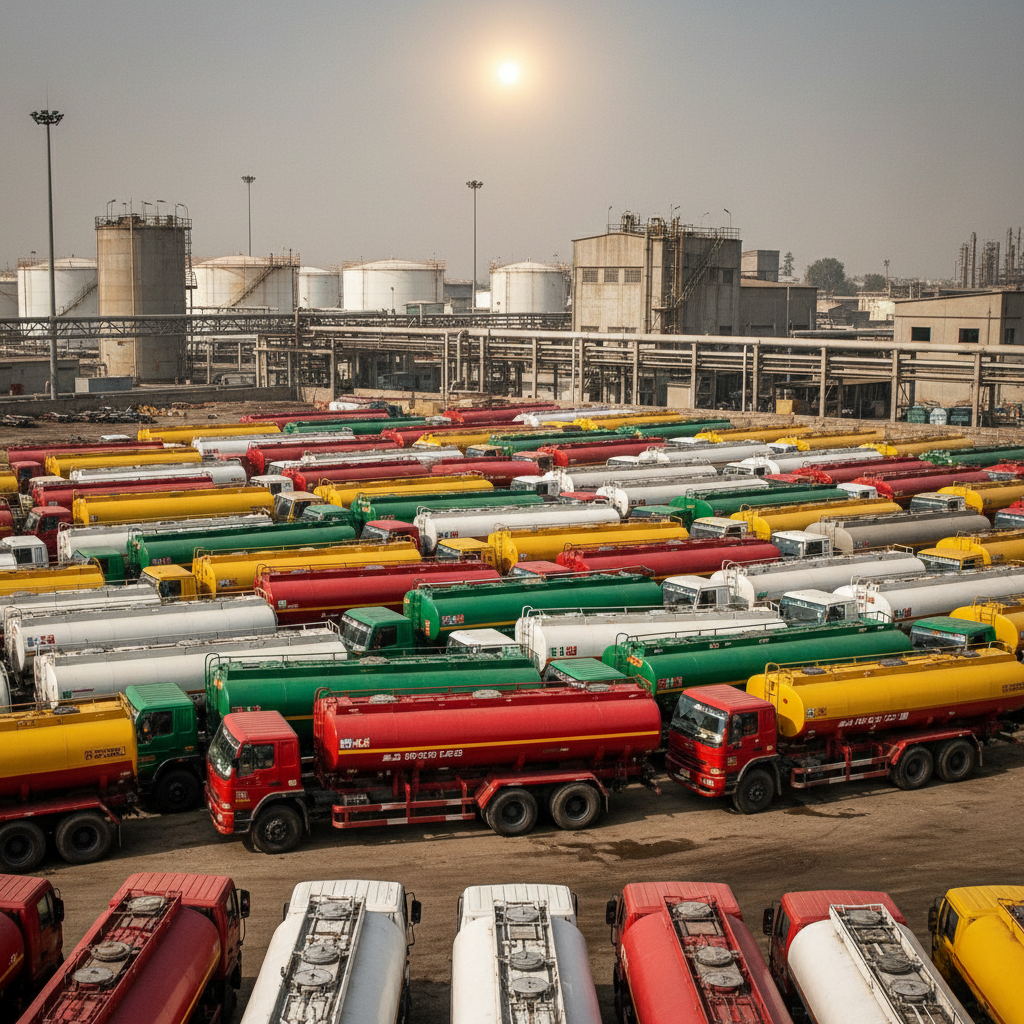Karachi, Pakistan — October 2025:
A potential nationwide petrol and diesel shortage is looming after the Sindh government began strict enforcement of the 1.8% Sindh Infrastructure Development Cess (SIDC) on petroleum imports at Karachi Port. The decision has created a serious bottleneck in fuel clearance, with dozens of oil vessels waiting offshore due to new procedural hurdles.
What Is the Sindh Infrastructure Development Cess (SIDC)?
A cess is an additional levy imposed on top of existing taxes, typically collected to fund specific government projects. In this case, the Sindh Infrastructure Development Cess is applied to the import value of petroleum cargo arriving at Karachi. Though the rate — about 1.8% — seems minor, its financial impact is massive when applied to large-scale imports.
For example, a single cargo worth $60 million now carries over $1 million in additional costs. Industry experts estimate this could raise petrol and diesel prices by Rs 2.5 to Rs 3 per litre if passed down to consumers.
The 100% Bank Guarantee Requirement
The real disruption, however, lies in how Sindh is enforcing the cess. The provincial Excise Department now demands a 100% bank guarantee for the full SIDC amount before releasing any petroleum cargo.
This requirement means that oil importers must secure bank guarantees for millions of dollars per shipment — a process that banks cannot complete instantly due to strict credit and risk limits. The result: major delays in port clearance, halting the offloading process and choking the country’s fuel supply chain.
OMCs and OMAP Sound the Alarm
Oil Marketing Companies (OMCs), represented by the Oil Companies Advisory Council (OCAC), have warned that the ongoing clearance delays could trigger a nationwide fuel crisis. The Oil Marketing Association of Pakistan (OMAP) has also written to the Ministry of Energy (Petroleum Division), urging an immediate halt to the 1.8% cess deduction until the federal fuel pricing formula is updated to accommodate this new cost.
OMAP argues that since OMCs operate under government-controlled prices, they cannot legally or financially absorb this additional charge. Without price adjustment, companies may face unsustainable losses or reduce supply — both scenarios that risk fuel shortages across Pakistan.
Karachi’s Critical Role in the Supply Chain
Karachi Port handles nearly all of Pakistan’s imported petroleum products, making it the choke point for the country’s energy flow. Any slowdown there ripples nationwide within hours. Industry reports suggest even if normal clearance resumes soon, it could take up to two weeks for supply chains to stabilize.
Who Will Pay the Price?
Ultimately, the end consumers are likely to bear the cost. Unless the federal government adjusts official fuel prices to include the Sindh cess, petrol and diesel prices could rise by Rs 2.5–3 per litre, further burdening motorists and transporters amid already high inflation.



